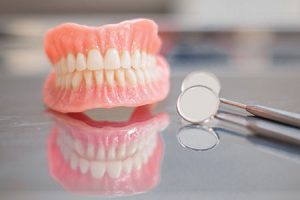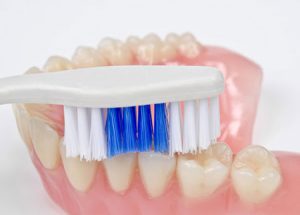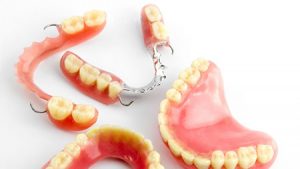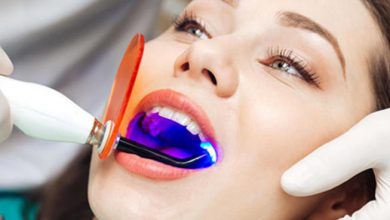Everything you need to know about dentures
Depending on your needs, dentures can be partial dentures or complete dentures. Small dentures are designed to replace a handful of missing teeth, while full dentures replace all of the teeth below or above your mouth.
What are dentures?
Dentures are teeth and gums that fit the shape of your mouth to replace your lost natural teeth. Dentures can be complete or partial, meaning they can replace all the teeth on the upper or lower gum line or have only a few missing teeth. The denture you need will fit your mouth and visually match the existing teeth.
What is a denture made of?
Dentures were made of porcelain or plastic in the past, but more modern dentures are generally made of hard resin. The materials used to make dentures are more fragile than natural teeth and can be easily crushed or cracked if dropped or cared for. It also wears out much faster than natural teeth, so you should replace it every five years or so with a new set of dentures.
Why use dentures?
Dentures improve the appearance of a smile with several missing teeth, support the structures around the cheeks and lips, keep the mouth healthy, and eat the foods you need. Eat chewing gum, adjust your diet and make sure you are getting proper nutrition. Finally, dentures are a great way to replace teeth that cause serious pain and oral health problems, such as damaged roots. Implantation of a prosthesis means the removal of troublesome teeth and a strong and beautiful replacement.

Minor dentures
Special dentures are usually used when the natural teeth around them are not strong enough to support structures such as bridges or the loss of more than one or two teeth.
Minor dentures are attached to the part of the gum line that rests on them and is attached to adjacent natural teeth to prevent them from moving. However, they do not close permanently, and you can easily clean them whenever you want and take them out when you sleep.
Complete dentures
Complete dentures are dentures that replace all of your natural teeth. You can attach them to your upper or lower gum line and hold them in place with suction or glue. Just like partial dentures, they are easily removable.
Immediate dentures and overdentures
These dentures are made before replacing the main tooth with a prosthesis and are used immediately after the tooth is extracted and during the healing process, which may take up to six months. These dentures are easier to move than permanent dentures and change as the gums and jaw improve in the mouth.
Overdentures are an alternative that can be used if traditional dentures are very uncomfortable or there are few natural teeth left. Overdentures are placed on the roots of natural teeth or implants.
Dentures supported by implants.
As the name implies, these are dentures that are anchored by dental implants. The tooth implant is a fixed device placed in the jawbone and can replace any number of teeth. They consist of an implant, a metal base (usually titanium), and a custom crown that looks exactly like a natural tooth, just like a natural tooth.
Implant dentures have several different ways to attach them, but they must be cared for and treated like a traditional denture. They are usually done in the lower jaw because the upper part has fewer problems with insecure connections, but many have implants on both the upper and lower sides.

How to clean dentures?
It does not matter what type of denture you use because they all need to be cleaned daily like regular teeth. After all, bacteria, plaque can accumulate on them and damage the teeth and gums.
To clean dentures, take them out of your mouth and into clean water to completely remove food particles that may be between the teeth, and then, using soap or cleaner, brush your denture. Brush very gently. Please do not use other cleaners, regular toothpaste, or electric toothbrushes, as they can damage and erode dentures.
After removing dentures from your mouth, be sure to clean your gums with a very soft toothbrush and fluoride toothpaste if necessary. If your toothbrush is very rough, wrap your finger in a soft, damp cloth and gently clean your gums, ensuring you clean all parts of the gums.
Ways to preserve dentures:
Always brush your dentures before going to bed to avoid damage, remove them and let the gums rest for a while. Put your dentures in a container of lukewarm water to prevent them from drying out and breaking. Only use a prosthetic soaking solution if your prosthesis does not have metal components, as the solution can cause the metal to become metallic.

Advantages of using dentures:
Those who have lost many of their teeth benefit more from the use of dentures. Another option or nothing can lead to daily activities such as chewing, swallowing, and even talking. Also, a person who has lost several teeth in a row may eventually develop facial tissue sagging, and these dentures can help them return to normal.










